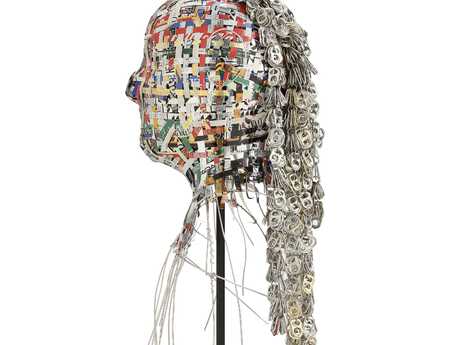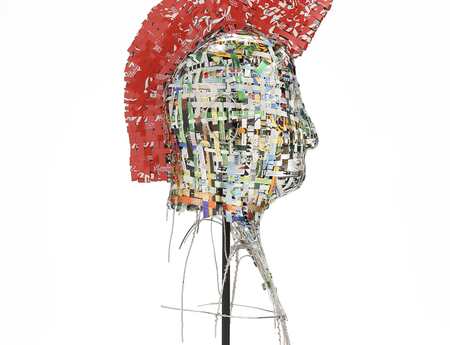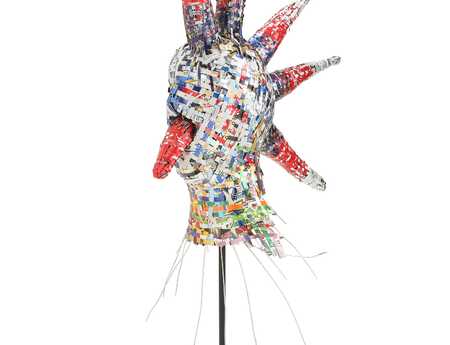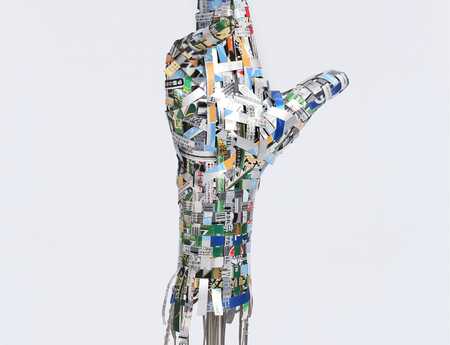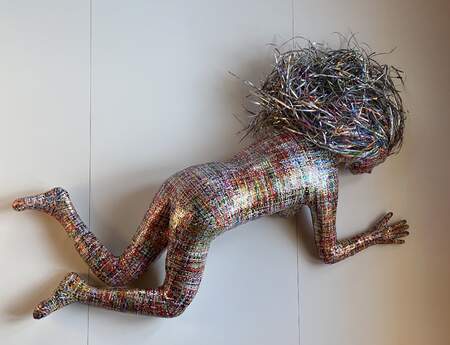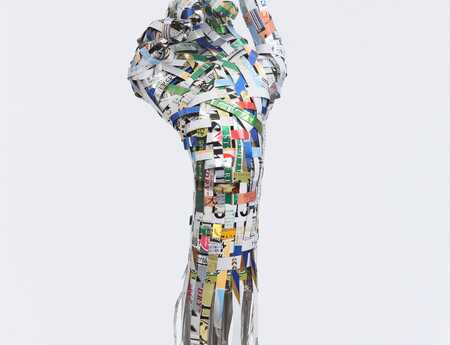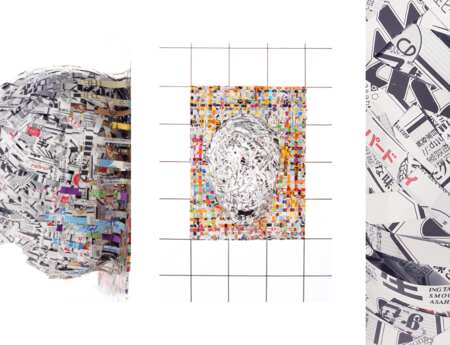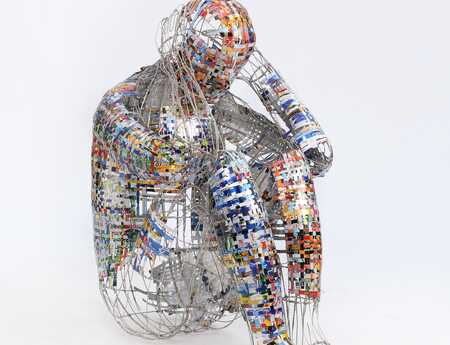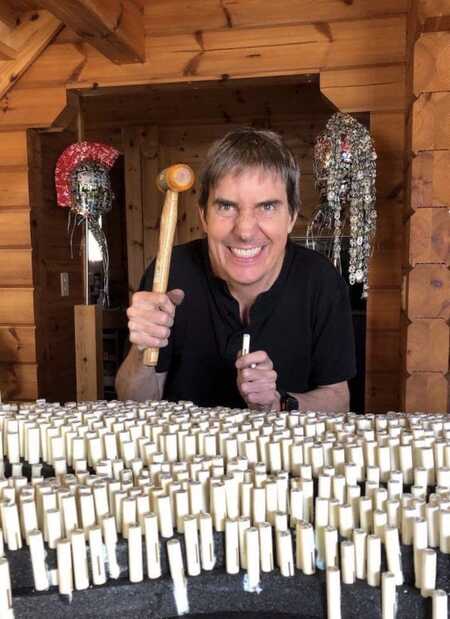
Japan
Jonathan Peter Homewood
Everyday objects carelessly disposed of by humans are often re-purposed by nature: a bird using a lampshade for a nest, a hermit crab a bottle cap for a shell, a mouse living in a milk carton. As an avid environmentalist, I am inspired by how nature contrives to amalgamate human discarded waste and have embarked on a journey of discovery through creation. My medium is the Soda Can. These miniature artworks containing some liquid delicacy, are disposed of with barely a second glance. What if the they could be reconfigured to give them a new life, redefining them for all to see and reconsider in this disposable world.
In my studio, the humble Soda Can has been the gift that keeps on giving for more than a decade. Since the beginning, I recognised it as a material suitable as “skin” over a wire lattice, the two repeating elements in every sculpture. Wire is bent to shape and secured with more wire creating a form with no internal scaffolding. Slicing soda cans into strips allows flat metal to curve over the structure creating an object with form and dynamism. Weaving can strips mixing different lengths, widths, colors and textures create lines or cross hatching in much the same way as I previously used pen and ink. While I may have an initial idea of what a piece may look like, the final outcome is usually very different as the skin over lattice takes a life of its own, developing is own narrative.
Born in Nigeria I have lived in South Africa, Brazil, Mexico, UK, Spain, Singapore and Japan. The techniques I use were picked up from local crafts and styles I have encountered in this journey. The wire wrapping is distinctively African. The manufactured art work on the soda cans transfers into a never ending palette of colours, giving the sculptures a South American aesthetic. Sometimes there is a clearly intended re-patched/re-used look, reminiscent of Japanese kintsugi. Other pieces incorporate some twist of humour, often unapologetically British.
My first sculpture with soda cans was that of a hand and I since then I have been obsessed with creating the perfect human body. I aim to bring dynamism and emotion into the figures. A combination of classical forms with modern materials has forced innovation and every sculpture is an exploration built on lessons learnt from the preceding work. Ultimately my goal is to produce find ways to incorporate the ignored and disposed into something repurposed but powerful and creative, perhaps much like the hermit crab.
In my studio, the humble Soda Can has been the gift that keeps on giving for more than a decade. Since the beginning, I recognised it as a material suitable as “skin” over a wire lattice, the two repeating elements in every sculpture. Wire is bent to shape and secured with more wire creating a form with no internal scaffolding. Slicing soda cans into strips allows flat metal to curve over the structure creating an object with form and dynamism. Weaving can strips mixing different lengths, widths, colors and textures create lines or cross hatching in much the same way as I previously used pen and ink. While I may have an initial idea of what a piece may look like, the final outcome is usually very different as the skin over lattice takes a life of its own, developing is own narrative.
Born in Nigeria I have lived in South Africa, Brazil, Mexico, UK, Spain, Singapore and Japan. The techniques I use were picked up from local crafts and styles I have encountered in this journey. The wire wrapping is distinctively African. The manufactured art work on the soda cans transfers into a never ending palette of colours, giving the sculptures a South American aesthetic. Sometimes there is a clearly intended re-patched/re-used look, reminiscent of Japanese kintsugi. Other pieces incorporate some twist of humour, often unapologetically British.
My first sculpture with soda cans was that of a hand and I since then I have been obsessed with creating the perfect human body. I aim to bring dynamism and emotion into the figures. A combination of classical forms with modern materials has forced innovation and every sculpture is an exploration built on lessons learnt from the preceding work. Ultimately my goal is to produce find ways to incorporate the ignored and disposed into something repurposed but powerful and creative, perhaps much like the hermit crab.
